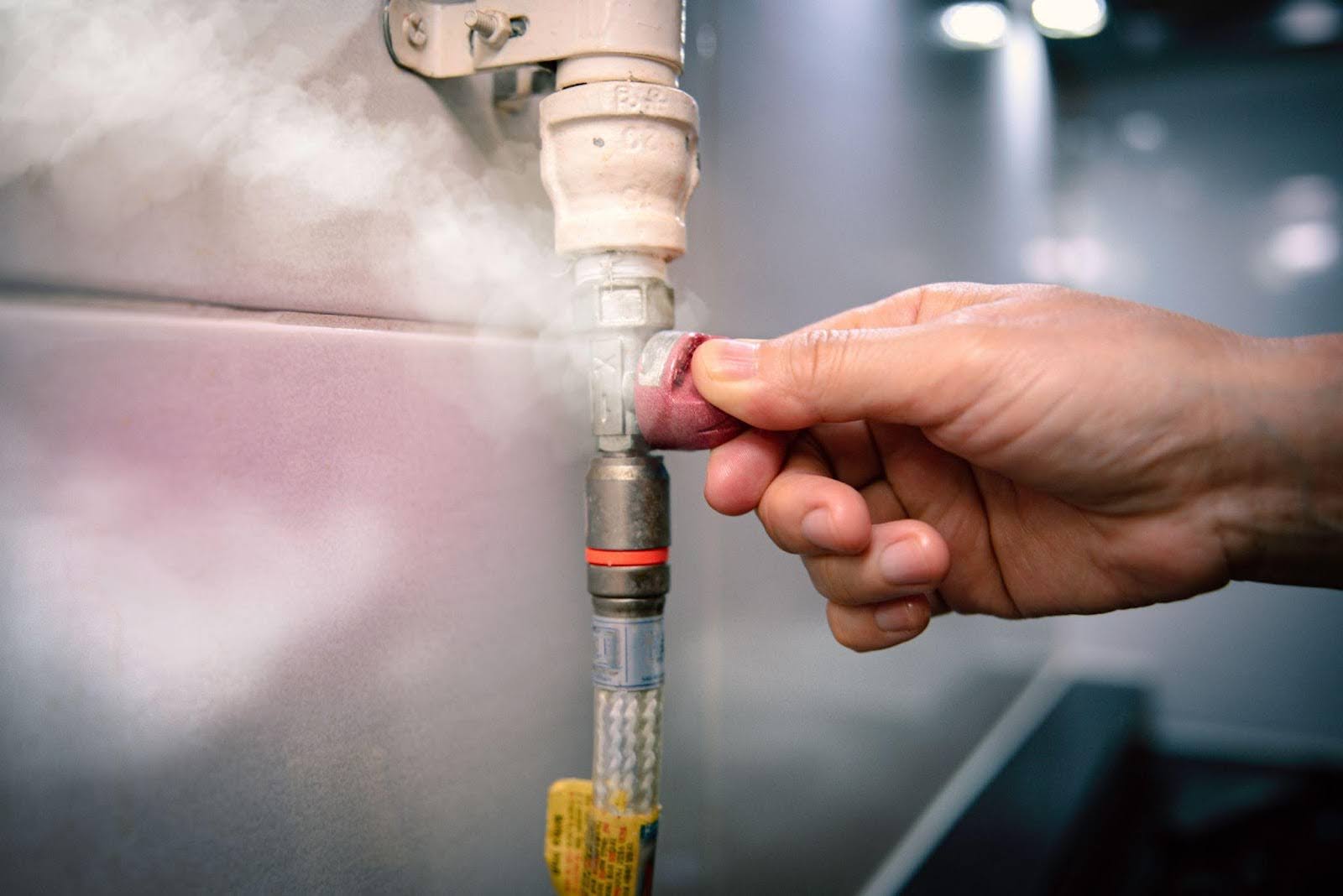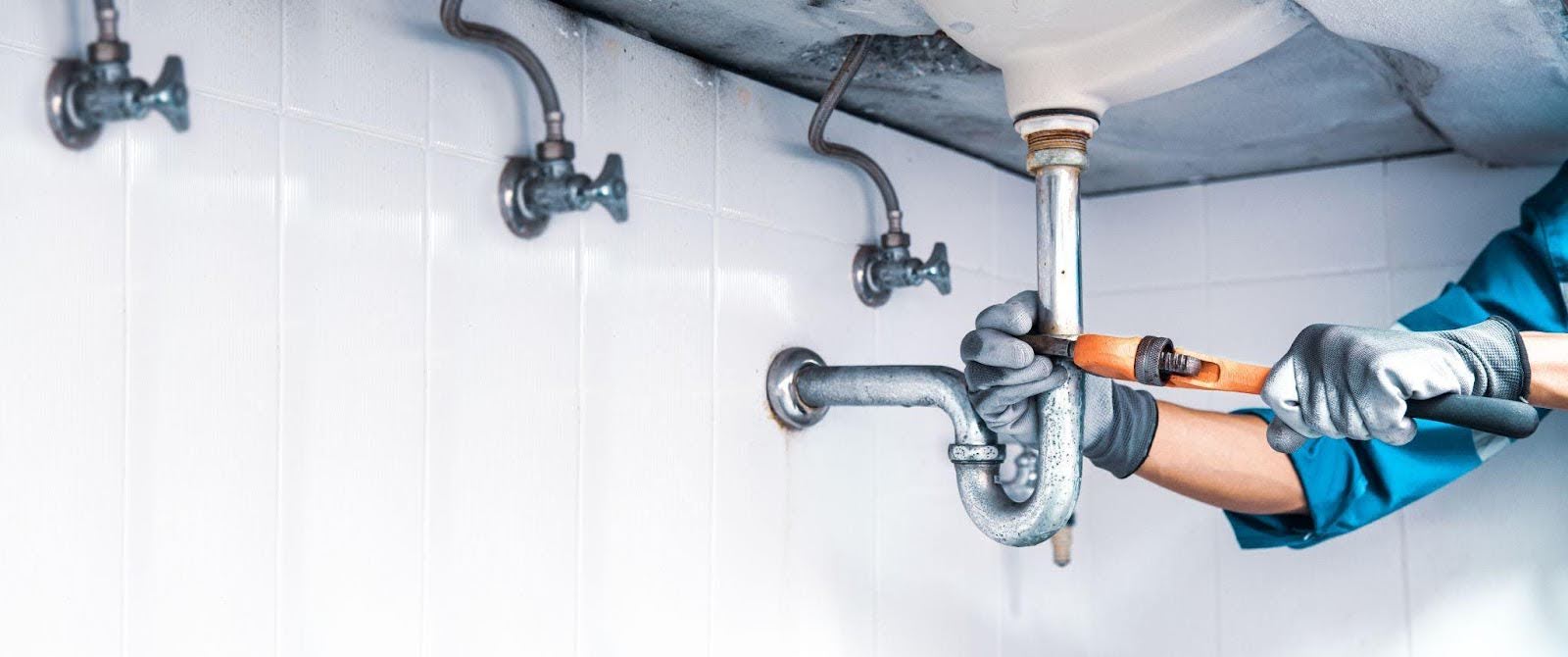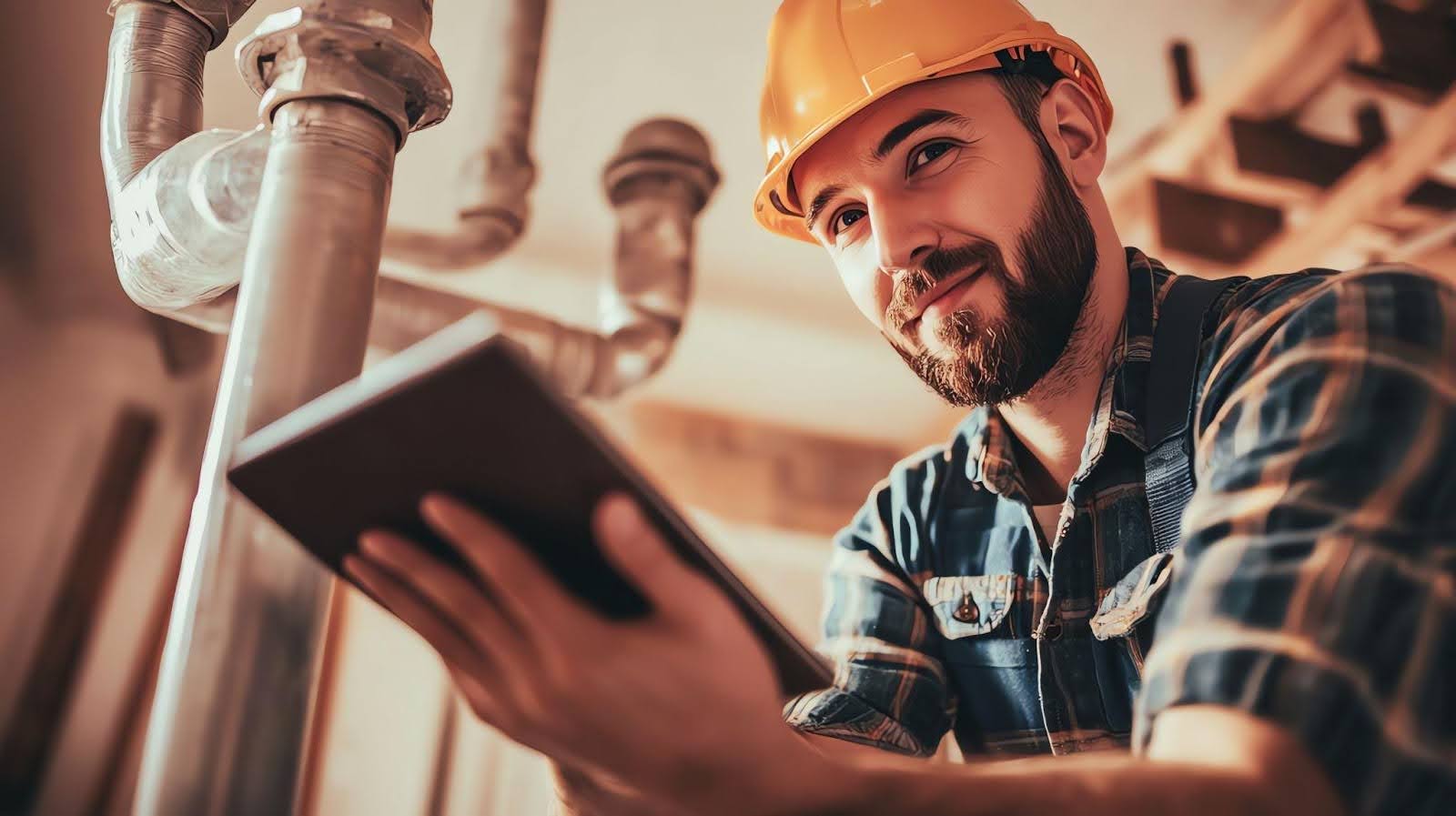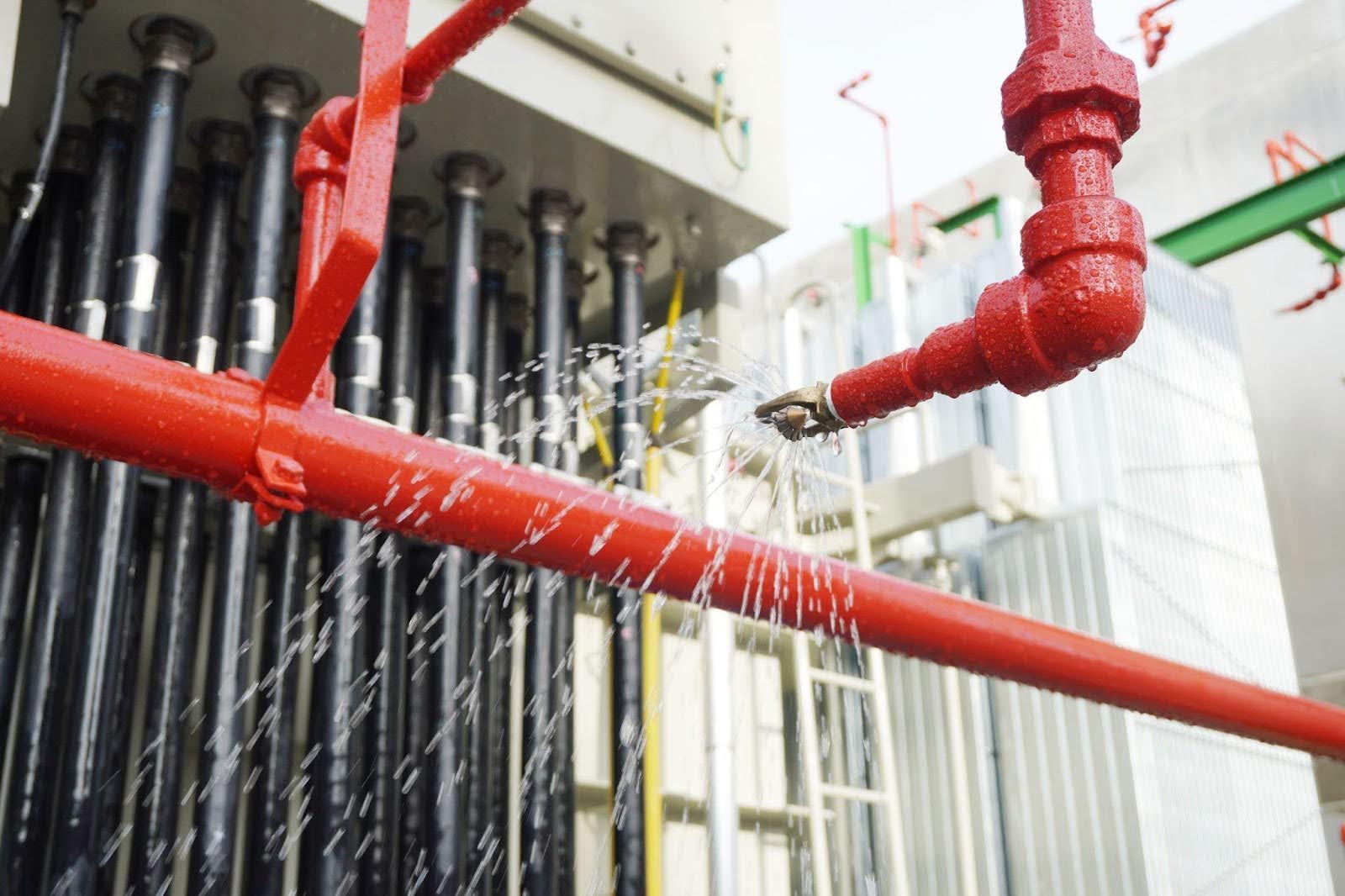Nothing can be quite as damaging to your home as burst water pipes. These pipes transport water throughout your home, spanning into almost every room. Having pipes running through your home means that a burst isn’t limited to places like your bathroom or kitchen.
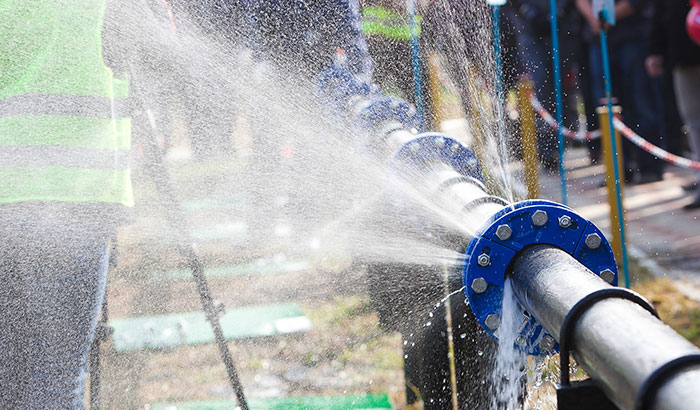
Water pipes can begin to rust over time, but other reasons they can burst include freezing temperatures, higher than normal water pressure, improper installation, and unaddressed wear and tear.
In this article, we’ll look at these common reasons, how they occur, and what you can do to prevent burst water pipes in your home.
The Most Common Reasons Water Pipes Burst
Water pipes are an essential part of any home, providing a steady water flow for various household needs. However, pipes can sometimes burst, leading to costly damage and inconvenient repairs. Some of the most common reasons include the following:
1 – Freezing Temperatures
When water freezes, it expands by about 9% in volume. This expansion can cause pipes to burst if they are not properly insulated or if the water inside them is allowed to freeze.
Even if a pipe is insulated correctly, if the water inside it is allowed to freeze, it can still cause the pipe to burst. This bursting can happen if a pipe is not used for an extended period of time, such as during a vacation, or if the temperature inside a home drops too low, allowing the water in the pipes to freeze.
2 – Corrosion and Rust
Corrosion is a common problem affecting metal pipes, especially those made of iron or steel. When metal pipes are exposed to water and oxygen, they can rust and become corroded over time.
This process can weaken the pipes and make them more prone to bursting. Corrosion can also occur if the water in the pipes is contaminated with chemicals or if the pipes are exposed to acidic or alkaline substances. In addition to making pipes more prone to bursting, corrosion can also reduce water flow and create blockages.
3 – High Water Pressure
High water pressure can be a significant cause of water pipe bursts. When the water pressure in pipes is too high, it can cause the pipes to expand and potentially burst. Several factors can contribute to high water pressure in pipes, including faulty pressure regulators, water main breaks, and problems with the water supply system.
Faulty pressure regulators are devices that are installed on pipes to control the water pressure and keep it at a safe level. If a pressure regulator is not working correctly, it can allow the water pressure to increase, potentially causing the pipes to burst.
4 – Tree Roots
Tree roots can be a major cause of water pipe bursts, especially in older homes with pipes that are prone to cracking or other types of damage. As trees grow, their roots can extend underground and potentially come into contact with pipes.
If the roots find a crack or other weakness in the pipe, they can grow into it and cause the pipe to burst. This is especially common in pipes made of materials prone to cracking or located near trees with extensive root systems.
5 – Poor Installation
Proper installation is an important factor in ensuring that pipes can function properly and are less prone to bursting. If pipes are not installed correctly, they may be more inclined to problems such as leaks, cracks, and bursts.
Some common mistakes that can occur during pipe installation include using the wrong type of pipe for the application, not following proper installation procedures, and using substandard materials.
6 – Wear and Tear
Pipes can become damaged and prone to bursting over time due to normal wear and tear. This can happen if pipes are not properly maintained or if they’re subjected to frequent use or other forms of stress. Some common types of wear and tear that can affect pipes include corrosion, cracks, and leaks.
How to Prevent Water Pipe Burts
Water pipe bursts can be a major inconvenience and cause significant damage to your home. Therefore, it’s important to take the following steps to prevent water pipes from bursting:
- Insulate pipes: Proper insulation can help prevent pipes from freezing during cold weather.
- Maintain water pressure: Ensure your pipes’ water pressure is at the recommended level. High water pressure can cause pipes to burst.
- Repair damaged pipes: If you notice any cracks or other damage to your pipes, get them repaired as soon as possible to prevent them from bursting.
- Replace old pipes: If your pipes are old, consider replacing them with newer, more durable pipes. It’s important to remember that plumbing isn’t something you should take lightly, and it’s better to get in touch with a professional.
- Use pipe sleeves: Pipe sleeves can help protect pipes from damage caused by tree roots.
- Install a water alarm: A water alarm can alert you to a leak or burst pipe, allowing you to take action before the problem worsens.
- Know where your main water shut-off valve is: In the event of a burst pipe, knowing where your main water shut-off valve is and how to use it can help you quickly stop the water flow and minimize damage.
Following these steps can help prevent water pipes from bursting and protect your home from water damage.
Let Salisbury Plumbing Take Care Of Your Burst Water Pipes
Water leaks can signify that your water pipes are on the verge of or have already burst. If you’re dealing with burst water pipes, contact us at Salisbury Plumbing. We offer affordable 24/7 services to take care of your plumbing emergencies.
The licensed and insured professionals at Salisbury Plumbing are ready to take on your plumbing needs, whether you’re in Provo, Orem, or anywhere else in the Utah County area. Call us at 385-375-1207 for emergencies, or fill out our online form for general inquiries about our services.
toto slot

